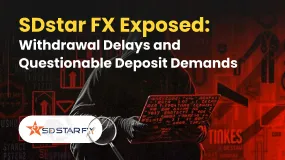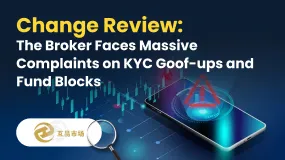Samsung Futures
Abstract:Samsung Futures is an unregulated broker based in South Korea. Operating without valid regulation, there is a high potential risk associated with trading with Samsung Futures. Without regulatory oversight, transparency, fair practices, and investor protection cannot be guaranteed. Samsung Futures offers a range of market instruments, including KOSPI products, Korea Treasury Bonds, Single Stock options, currencies, and commodity products. Margin rates vary depending on the instrument type. Deposit and withdrawal processes follow specific rules set by the Korea Exchange (KRX) to protect customers. Samsung Futures provides two trading platforms: HTS and HTS Demo, offering a user-friendly interface for trading activities. Trading hours vary by instrument, and customer support is available for inquiries. Considering the risks involved, it is advisable to exercise caution and explore alternative regulated brokers for a higher level of security and accountability.
| Aspect | Information |
| Registered Country/Area | South Korea |
| Founded year | 2-5 years (exact founding year not specified) |
| Company Name | Samsung Futures |
| Regulation | Suspicious Regulatory License |
| Minimum Deposit | Not mentioned |
| Margins | Vary depending on the type of contract |
| Trading Platforms | HTS (Home Trading System), HTS Demo |
| Tradable assets | KOSPI (KOSPI200 Futures, KOSPI200 Options, KQ150 Index Futures), Korea Treasury Bond Futures, Single Stock Futures and Options, Currency Futures and Options, Commodity Products (Gold Futures) |
| Account Types | Omnibus account |
| Demo Account | Available (HTS Demo) |
| Trading Hours | Vary depending on the specific market instruments |
| Customer Support | IB Client Services: ssfuturesintlsales@samsung.com, +822-3707-3931; Electronic Trading Client Services (DMA): ssfutures.dma@samsung.com, +822-3707-3560 |
| Payment Methods | Not mentioned |
Overview of SAMSUNG FUTURES
Samsung Futures is an unregulated broker operating in South Korea, offering a range of market instruments across different categories. While they provide various trading options, it is important to note the potential risks associated with trading with an unregulated broker. Without proper regulation, there is a lack of transparency, fair practices, and investor protection.
The market instruments offered by Samsung Futures include products related to the KOSPI index, Korea Treasury Bonds of different durations, single stock futures and options, currency futures and options, and commodity products such as gold futures and lean hog futures (which are no longer available for trading).
Samsung Futures offers an omnibus account for trading, allowing position monitoring and management at the sub-account level. Margin rates vary depending on the type of contract, and deposit and withdrawal processes follow specific rules and regulations set by the Korea Exchange (KRX) to protect customers. Samsung Futures provides two trading platforms: HTS (Home Trading System) and HTS Demo, offering a user-friendly interface for trading activities.
While Samsung Futures offers trading opportunities, it is essential to exercise caution due to the lack of regulation and associated risks. Traders are advised to consider alternative regulated brokers that can provide a higher level of security and accountability for their investments.

Pros and Cons
Samsung Futures offers several pros and cons for potential traders. On the positive side, it provides a variety of market instruments across different categories, allowing traders to access various trading opportunities. The option to trade in a single omnibus account enables position monitoring and management. Samsung Futures also offers an HTS platform equipped with features and tools for trading activities. Additionally, the margin rates vary based on the contract type, providing flexibility for traders. The deposit and withdrawal processes are regulated by the Korea Exchange (KRX), helping with a level of protection for customer funds. Samsung Futures also maintains separate customer deposit accounts for added security. On the downside, there are concerns about a suspicious regulatory license, raising questions about the oversight and accountability of the broker. The limited account types available may not cater to all traders' needs. There may be limitations in terms of payment methods accepted by Samsung Futures. Furthermore, the lack of educational resources could hinder traders' ability to learn and make informed decisions. Lastly, customer support provided by Samsung Futures may have limitations, potentially affecting the level of assistance available to traders.
| Pros | Cons |
| Provides market instruments across categories | Suspicious regulatory license |
| Offers trading in a single omnibus account | Limited account types |
| HTS platform with features and tools | Limited customer support |
| Margin rates vary based on contract type | Lack of payment methods |
| Deposit and withdrawal rules regulated by KRX | Lack of educational resources |
| Provides separate customer deposit accounts | |
| Specific trading hours for each instrument |
Is SAMSUNG FUTURES Legit?
Samsung Futures is a broker that operates without any valid regulation. This means that there are no authoritative bodies overseeing or monitoring their activities. It is crucial to understand that trading with an unregulated broker like Samsung Futures carries inherent risks. Without proper regulation, there is no guarantee of transparency, fair practices, or investor protection. It is advisable to exercise caution and consider alternative regulated brokers that provide a higher level of security and accountability for your investments.

Market Instruments
Samsung Futures offers a range of market instruments across different categories. Here is a summary of the types of instruments they provide:
1. KOSPI: Samsung Futures offers products related to the KOSPI index, such as KOSPI200 Futures, KOSPI200 Options, and KQ150 Index Futures.
2. KTB (Korea Treasury Bond): They provide futures contracts for different durations of Korea Treasury Bonds, including 3-year, 5-year, and 10-year KTB Futures.
3. Single Stock: Samsung Futures offers Single Stock Futures and Single Stock Options for a variety of listed stocks on the KOSPI market, including companies like AmorePacific Corporation, Hyundai Motors, LG Electronics, and Samsung Electronics.
4. Currency: They provide futures contracts and options for different currencies. Examples include US Dollar Futures, US Dollar Options (currently unavailable for trading), Japan Yen Futures, and Euro Futures.
5. Commodity Products:
Gold Futures: The underlying asset for Gold Futures is a fine gold bar with a purity of 99.99%. The contract size is 1 Kg (1,000g), and the price quotation is in Korean Won (KRW) per gram. The tick size is 10, representing a value of KRW 10,000.
Lean Hog Futures: Please note that this product is no longer available for trading. The underlying asset for Lean Hog Futures was the Lean Hog Index calculated by the Animal Products Grading Service. The contract size was 1,000 kg, and the tick size was 5 KRW/kg, representing a value of 5,000 KRW (=1,000kg x 5 KRW).
Each instrument has specific specifications, including underlying assets, contract sizes, tick sizes and values, contract months, and margin requirements. It is important to thoroughly understand these details and carefully consider the associated risks before engaging in trading activities with Samsung Futures or any other broker.

Pros and Cons
| Pros | Cons |
| Diverse range of market instruments | Limited availability of certain options |
| Exposure to various asset classes | Need for thorough understanding of specifications |
| Potential for hedging and risk management | Risk of trading losses |
Account Types
Samsung Futures offers clients the ability to trade in a single account known as an omnibus account, which enables position monitoring and management at the sub-account level.
Margins
The margin rates for Samsung Futures vary depending on the type of contract. For Single Stock Options, the initial margin rate ranges from 7.05% to 49.05%, while the maintenance margin rate ranges from 4.70% to 32.70%. For KOSPI200 Futures and KOSPI200 Options, both have an initial margin rate and maintenance margin rate of 7.95% and 5.3% respectively. Korea Treasury Bond Futures have different rates based on the duration, with the initial margin rate ranging from 1.602% to 4.41%, and the maintenance margin rate ranging from 1.07% to 2.94%. Lastly, Gold Futures have an initial margin rate of 6.3% and a maintenance margin rate of 4.2%.
Deposit & Withdrawal
Deposit and Withdrawal at Samsung Futures follow specific rules and regulations set by the Korea Exchange (KRX). Customers, except for qualified institutional investors, are required to deposit customer margin with member firms before placing an order. The order cannot be submitted without the necessary margin deposit. However, no margin deposit is needed for transactions between member firms and the KRX. Member firms may deposit the required margin by noon of the next trading day.
To protect customers, the KRX provides separate accounting of customers' deposits. Customer's deposits for futures trading are maintained in separate accounts, distinct from the member firms' properties. The Futures Trading Act mandates that member firms deposit customer margins with the Korea Securities Finance Corporation (KSFC) and customers' securities with the Korea Securities Depository (KSD).
The KRX monitors the financial status of its members regularly, including the balance of margins and their financial requirements. It also requires members to submit financial statements quarterly. In the case of a member firm's failure to fulfill obligations, the KRX provides compensation through a sequential procedure. This includes using funds from the Joint Compensation Fund, fidelity guarantee money, margins deposited by the concerned clearing members, and cash due to them. The KRX can also utilize the Joint Compensation Funds contributed by other clearing members in proportion to their contributions. Additionally, the KRX maintains a credit line of up to KRW 100 billion from a bank to address any emergencies that may arise on the KRX market.
Pros and Cons
| Pros | Cons |
| Clear rules and regulations set by the Korea Exchange (KRX) | No flexibility in margin deposit requirement for customers, which may limit their trading options |
| Customer deposits are kept separate from member firms' properties | Lack of convenience for customers, as they need to deposit margin before placing an order |
| Regular monitoring of members' financial status and submission of financial statements | Limited liquidity options for customers due to the strict deposit and withdrawal procedures |
Trading Platforms
Samsung Futures offers two trading platforms: HTS (Home Trading System) and HTS Demo.
HTS (Home Trading System) is a downloadable trading platform provided by Samsung Futures. It allows users to access and trade various financial instruments. The HTS platform offers a range of features and functionalities to facilitate trading activities. While the specifics of these features are not mentioned, users can expect a comprehensive interface with tools for market analysis, order placement, and monitoring of positions. The HTS platform is designed to provide a user-friendly trading experience for clients.
HTS Demo is a demo version of the HTS platform offered by Samsung Futures. It allows users to simulate trading activities without using real money. This demo platform is useful for users who want to practice trading strategies, explore the platform's features, or gain familiarity with the trading environment before engaging in real trading. By offering a demo version, Samsung Futures provides an opportunity for users to get hands-on experience with their platform and evaluate its suitability for their trading needs.
Pros and Cons
| Pros | Cons |
| Comprehensive interface | No information on specific features |
| Allows simulated trading (HTS Demo) | Lack of real-money trading experience |
| User-friendly platform design | Limited information on platform setup |
Trading Hours
The trading hours for Samsung Futures vary depending on the specific market instruments. The general trading hours for most instruments are as follows: Single Price Auction takes place from 08:00 to 09:00 and again from 15:35 to 15:45. Regular trading hours are from 09:00 to 15:45 on weekdays. On the last trading day, the trading hours are from 09:00 to 15:20 for most instruments, except for US Dollar Futures and Japan Yen Futures, which end at 11:30. Please note that these trading hours are based on Korean Standard Time and may be subject to change.
Customer Support
The trading hours for Samsung Futures may vary depending on the specific market instruments. It is recommended to contact the respective customer support for accurate and up-to-date information. For IB Client Services, you can reach out to ssfuturesintlsales@samsung.com or call +822-3707-3931. For Electronic Trading Client Services related to DMA, you can contact ssfutures.dma@samsung.com or call +822-3707-3560.

Conclusion
In conclusion, Samsung Futures operates without valid regulation, which poses potential risks for traders. The lack of oversight means there is no guarantee of transparency, fair practices, or investor protection. While Samsung Futures offers a variety of market instruments across different categories, including KOSPI, Korea Treasury Bonds, Single Stocks, Currencies, and Commodity Products, it is essential to thoroughly understand the associated risks and consider alternative regulated brokers for higher security and accountability. Samsung Futures provides an omnibus account for trading, and margin rates vary depending on the contract type. Deposit and withdrawal processes follow specific rules set by the Korea Exchange, and customer protection measures are in place. Samsung Futures offers two trading platforms, HTS and HTS Demo, for trading experiences and practice purposes. The trading hours vary by instrument, and accurate information can be obtained from customer support. It is crucial to exercise caution and fully research before engaging in trading activities with Samsung Futures or any unregulated broker.
FAQs
Q: Is Samsung Futures a regulated broker?
A: No, Samsung Futures operates without valid regulation, which carries inherent risks.
Q: What market instruments does Samsung Futures offer?
A: Samsung Futures offers instruments related to KOSPI, Korea Treasury Bonds, single stocks, currencies, and commodities.
Q: What are the margin rates for Samsung Futures?
A: Margin rates vary depending on the contract type, ranging from 1.602% to 49.05%.
Q: How does deposit and withdrawal work with Samsung Futures?
A: Deposit and withdrawal follow specific rules set by the Korea Exchange, with separate accounting of customer deposits for futures trading.
Q: What trading platforms does Samsung Futures provide?
A: Samsung Futures offers HTS (Home Trading System) and HTS Demo, allowing users to trade and practice trading strategies, respectively.
Q: What are the trading hours for Samsung Futures?
A: Trading hours vary by instrument and are based on Korean Standard Time.
Q: How can I contact customer support for Samsung Futures?
A: For IB Client Services, email ssfuturesintlsales@samsung.com or call +822-3707-3931. For Electronic Trading Client Services (DMA), email ssfutures.dma@samsung.com or call +822-3707-3560.
Read more

Capital.com Review: Is This Broker Safe or a Scam?
Capital.com is a well-known brokerage established in 2017 with a significant global presence. Headquartered in the Bahamas, the broker has expanded its influence across regions such as the UAE, Australia, and parts of Europe, achieving an "AA" Influence Rank. On the surface, Capital.com presents a robust regulatory framework and a high WikiFX Score of 7.84.

SDstar FX Exposed: Withdrawal Delays and Questionable Deposit Demands
Have you been witnessing long fund withdrawal delays by SDstar FX, a Comoros-based forex broker? Does the broker disallow you from withdrawing either principal or profit? Are you made to deposit every time you demand a withdrawal? Does the SDstar FX customer support team fail to address your queries? This has reportedly become the case of many traders here. In this SDstar FX review article, we have highlighted these complaints. Read on!

Is WisunoFX Trustworthy? A Complete 2025 Review for Traders
Picking a reliable forex broker is the most important decision any trader will make. It's like choosing the foundation for your house - everything else depends on it. With so many brokers out there, WisunoFX often catches traders' attention, making them wonder: "Is WisunoFX trustworthy?" and "Is WisunoFX reliable?" To answer these questions properly, you need more than just a quick look at its website - you need a complete, fact-based review. This detailed 2025 review will provide you with the clarity you need. We'll take an honest look at WisunoFX by examining the key factors that make a broker reliable. We'll verify its licenses and regulations, examine its actual trading conditions, compare its various account types, assess its platform performance, and review what other traders are saying. Our goal is to give you all the information you need to make a smart decision.

Change Review: The Broker Faces Massive Complaints on KYC Goof-ups and Fund Blocks
Investors have called out Change, a China-based forex broker, for allegedly carrying out illegitimate forex trading activities. These include the poor handling of the Know Your Customer (KYC) process, fund blocks, and inappropriate customer support service. Traders have openly criticized the broker for these alleged wrongdoings. In this Change review article, we have highlighted trader comments. Take a look!
WikiFX Broker
Latest News
Deriv Review: Is This Popular Broker Legit or Risky?
Libertex Investigation: When "Expert Advice" Leads to Total Ruin
EZINVEST Exposure: When a "Personal Advisor" Becomes Your Portfolio’s Worst Enemy
Is CICC Broker Safe? CICC Regulation Check & In-Depth Review
A Collapse In Germany's Chemical Sector Is A Bad Omen
Change Review: The Broker Faces Massive Complaints on KYC Goof-ups and Fund Blocks
FINRA Imposes $150,000 Fine on Kingswood Capital Partners Over Supervisory Failures
Why Smart People Still Get Scammed | The Danger of Hope and Greed
IQ Option Review: Regulated Global Broker or Withdrawal Trap?
Inside the Elite Committee: Talk with Ayu Nur Permana
Rate Calc


